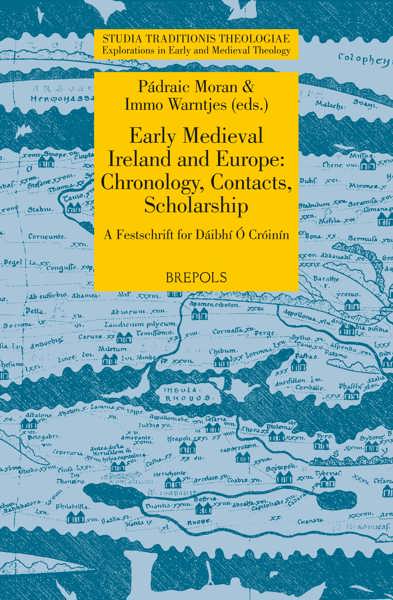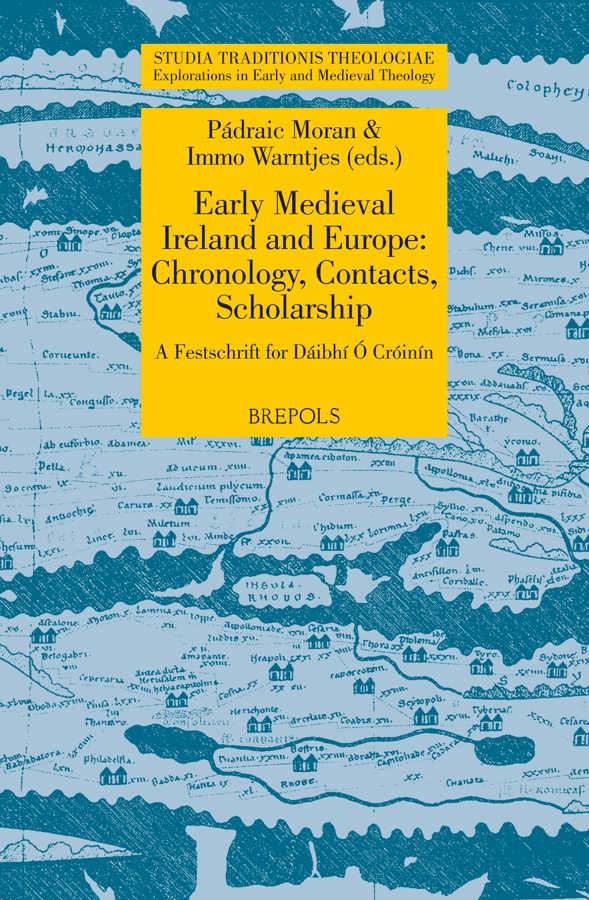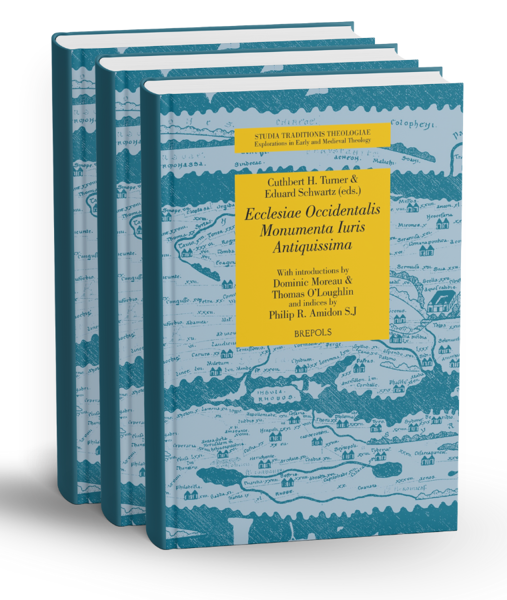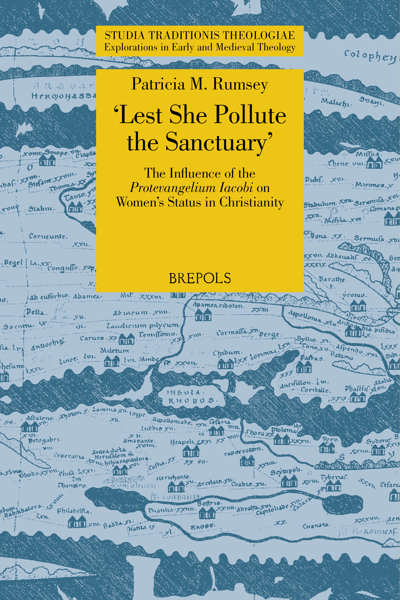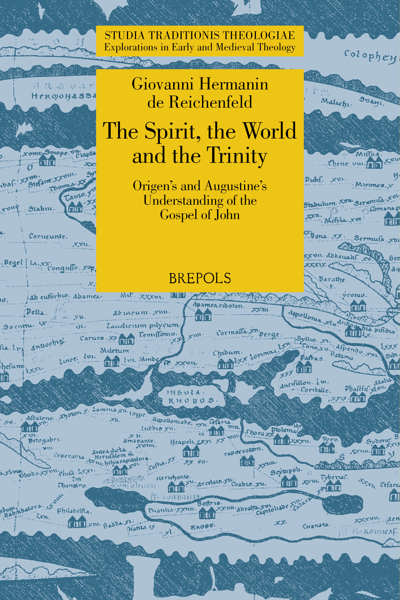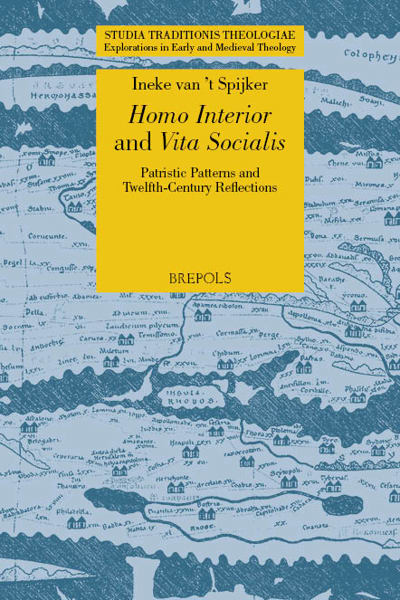
Early Medieval Ireland and Europe: Chronology, Contacts, Scholarship
A Festschrift for Dáibhí Ó Cróinín
Pádraic Moran, Immo Warntjes (eds)
- Pages: xxx + 724 p.
- Size:156 x 234 mm
- Illustrations:36 b/w, 18 tables b/w.
- Language(s):English, German
- Publication Year:2015
- € 180,00 EXCL. VAT RETAIL PRICE
- ISBN: 978-2-503-55313-9
- Paperback
- Available
- € 180,00 EXCL. VAT RETAIL PRICE
- ISBN: 978-2-503-55420-4
- E-book
- Available
A collection of 27 articles on cultural interactions between Ireland, Britain and the Continent during the early Middle Ages.
"La grammaire et la paléographie occupent une large place dans ce recueil qui n'en est pas moins un miroir de la compétence multidisciplinaire de celui qu'il honore. Ce volume tient bien son rang dans la collection Studia Traditionis Theologiae." (P.-M. Bogaert, in: Revue bénédictine 2016/2, p. 433)
"Bemerkenswert is die wissenschaftliche Substanz der einzelnen Kontributionen, die das fraglichen Forschungsgebiet oftmals erheblich voranbringen oder zumindest tiefergehende Denkanstöße liefern." (Philipp Nothaft, in Deutsches Archiv für Erforschung des Mittelalters, Band 72-1 [2016], p. 219-220)
“(…) this is an outstanding scholarly volume and a veritable treasure chest, with something to interest every reader.” (Emma Anderson, in Óenach, 7/2, 2015, p. 19)
"Insgesamt haben die beiden Herausgeber sorgfältige Arbeit geleistet und mit den übrigen Autor/inn/en dem Jubilar eine überaus gehaltvolle Festschrift präsentiert, die auch ein ertragreiches Geschenk für das Lesepublikum darstellt." (Harald Krahwinkler, in: Mitteilungen des Instituts für Österreichische Geschichtsforschung 125, 2017, p. 491-492)
Dr Pádraic Moran is a lecturer in Classics at the National University of Ireland, Galway.
Dr Immo Warntjes is a lecturer in Irish Medieval History at Queen’s University, Belfast.
The pivotal role of Ireland in the development of a decidedly Christian culture in early medieval Europe has long been recognized. Still, Irish scholarship on early medieval Ireland has tended not to look beyond the Irish Sea, while continental scholars try to avoid Hibernica by reference to its special Celtic background. Following the lead of the honorand of this volume, Prof. Dáibhí Ó Cróinín, this collection of 27 essays aims at contributing to a reversal of this general trend. By way of introduction to the period, the first section deals with chronological problems faced by modern scholars as well as the controversial issues relating to the reckoning of time discussed by contemporary intellectuals. The following three sections then focus on Ireland’s interaction with its neighbours, namely a) Ireland in the insular world, b) continental influences in Ireland, and c) Irish influences on the Continent. The concluding section is devoted to modern scholarship and the perception of the Middle Ages in modern literature.
1. Early Irish history and chronology
Daniel P. McCarthy, The chronology of Saint Columba’s life
Immo Warntjes, Victorius vs Dionysius: the Irish Easter controversy of AD 689
Eric Graff, A note on the divisions of time in the Catalogue of the Saints of Ireland
Masako Ohashi, The ‘real’ addressee(s) of Bede's Letter to Wicthed
2. Contacts I: Ireland in the Insular world
Colin Ireland, Some Irish characteristics of the Whitby Life of Gregory the Great
Anthony Harvey, Cambro-Romance? Celtic Britain’s counterpart to Hiberno-Latin
Paul Russell, Beyond Juvencus: an Irish context for some Old Welsh glossing?
Pierre-Yves Lambert, Pretium benedictionis
David Howlett, Two Irish jokes
Pádraig Ó Néill, Anglo-Irish interactions in a liturgical calendar from Cambridge, Corpus Christi College Library, 405
3. Contacts II: Continental influences in Ireland
Donnchadh Ó Corráin, Áui, Úi, Uí: a palaeographical problem?
Hayley Humphrey, Bathed in mystery: identifying the ‘bathing of the Christ child’ scene on an Irish high cross
Peter Harbison, Tuotilo—St Gall’s uomo universale: re-dating his ivories to c.AD 880
Jacopo Bisagni, Flutes, pipes, or bagpipes? Observations on the terminology of woodwinds in Old and Middle Irish
Leofranc Holford-Strevens, The harp that once through Aulus’ hall
Thomas O’Loughlin, The so-called capitula for the Book of the Apocalypse in the Book of Armagh (Dublin, Trinity College, 52) and Latin exegesis
Jean-Michel Picard, Vir apostolicus: St Peter and the claim of apostolicity in early medieval Ireland
Michael Clarke, The Leabhar Gabhála and Carolingian origin legends
Pádraic Moran, Greek dialects and Irish identity in the early middle ages
4. Contacts III: Irish influences on the Continent
Michael W. Herren, Sedulius Scottus and the knowledge of Greek
Jean Rittmueller, Construe marks, a contraction mark, and an embedded Old Irish gloss in a Hiberno-Latin homily on the Octave of Easter
Rob Meens, With one foot in the font: the failed baptism of the Frisian King Radbod and the 8th-century discussion about the fate of unbaptized forefathers
David Ganz, The earliest manuscript of Lathcen’s Eclogae Moralium Gregorii and the dating of Irish cursive minuscule script
Mark Stansbury, The ‘private’ books of the Bobbio catalogue
5. Scholarship
Richard Sharpe, Seán Ó Cléirigh and his manuscripts
Hans-Ulrich Schmid, Old writings are no mystery to me… Skaldenstrophen der Orkneyinga Saga und George Mackay Brown
Nicholas Carolan, ‘Out of the smoke’: A. Martin Freeman’s West Cork song collection of 1913–14
